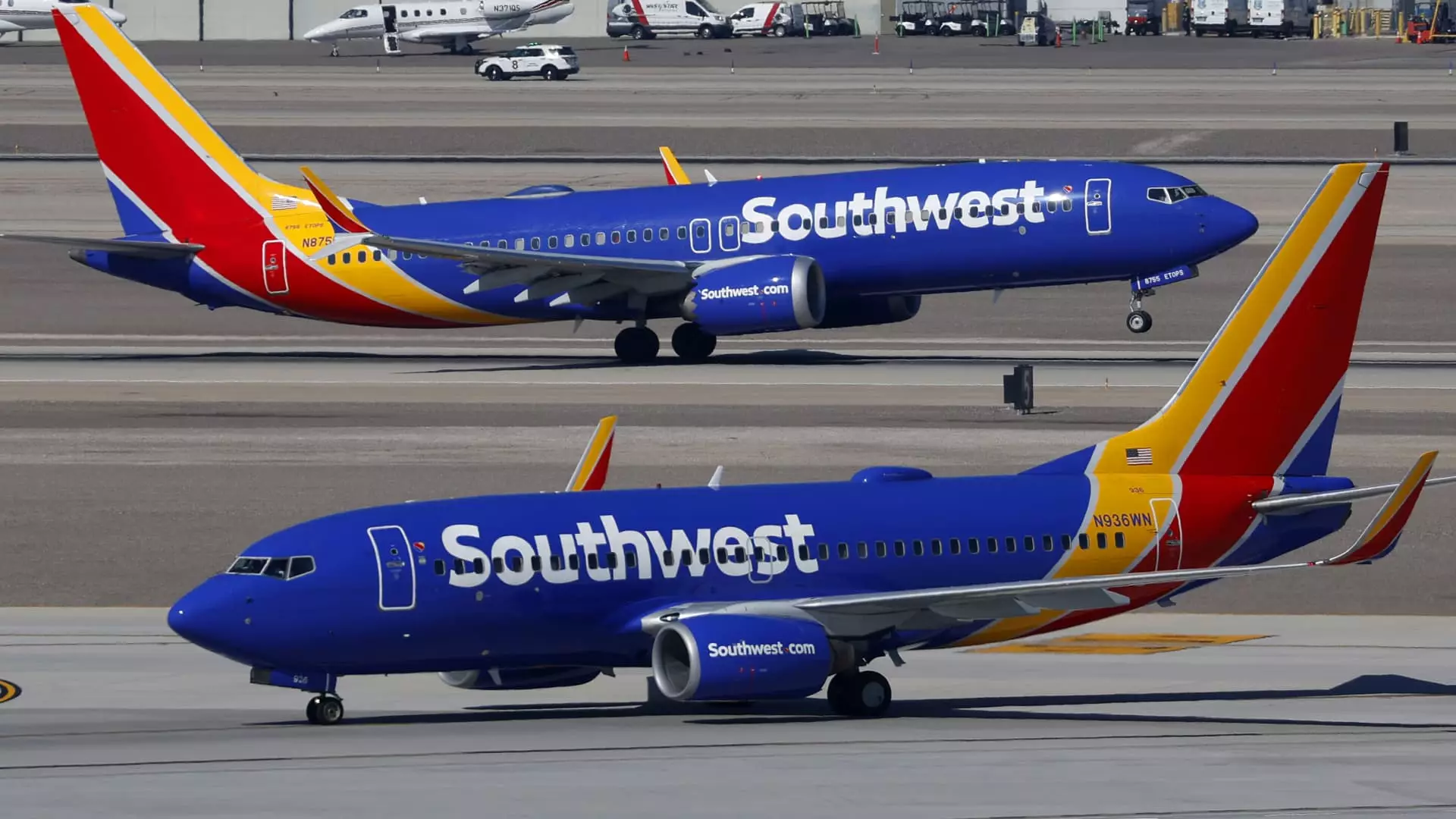For over half a century, Southwest Airlines has championed the philosophy of open seating—a liberating policy that allowed passengers to choose their seats upon entering the aircraft, fostering a sense of spontaneity and egalitarianism. This approach distinguished Southwest from other carriers, cultivating a loyal customer base that cherished the freedom of not pre-assigning seats and avoiding extra fees. Yet, in a startling move driven by mounting financial pressures and a relentless pursuit of profitability, Southwest is abandoning this cherished tradition. Starting January 27, 2024, passengers will be assigned seats—an uncharacteristic but arguably necessary evolution in an increasingly competitive airline industry. While some celebrate this change as a modernization, it actually reveals a troubling shift towards commodification and profit maximization at the expense of customer experience and core values.
Profit Over Passion: A Farewell to the Spirit of Spontaneity
Southwest’s original value proposition was rooted in transparency, simplicity, and customer-friendly policies—free checked bags, no hidden fees, and the freedom of open seating. These features resonated with travelers tired of opaque fare structures and aggressive upselling common among rivals. Yet, the airline’s recent pivot reveals a stark reality: survival in an industry dictated by shareholder demands often necessitates departure from principles that once defined it. The decision to implement assigned seating signals a prioritization of efficiency and revenue over the cherished spontaneity of the Southwest experience.
The airline’s move aligns with a broader industry trend where maximizing revenue per passenger surpasses the commitment to passenger autonomy. If loyalty and customer satisfaction truly mattered, Southwest might have sought less intrusive innovations. Instead, it is embracing a model that can fragment its customer base, inconvenience families expecting to sit together, and streamline boarding procedures at the considerable expense of the airline’s unique identity. The nostalgic charm of staking your claim in line, the thrill of discovering your seat upon boarding, will soon give way to a more bureaucratic, transactional experience.
Rebranding Efficiency as a Virtue—A Costly Illusion
Southwest’s rollout of assigned seats is not merely a procedural adjustment; it is a calculated attempt to bolster revenue streams. The airline aims to introduce seat assignment fees, preferred seating, and extra legroom options—monetizing what was once free. This reflects an uncomfortable truth: the airline’s core business model is shifting from service-centric to profit-driven. The move to reconfigure aging Boeing aircraft to include premium seating options shows a clear intent to capitalize on passenger demand for comfort and convenience, but at a premium.
However, this push for ancillary revenues—while seemingly clever—risks alienating loyal customers who valued Southwest’s simplicity and transparency. Frequent flyers and families who valued the flexibility of open seating now have to contend with assigned spots and possible additional costs. The airline highlights that priority boarding will favor top-tier and premium customers, incentivizing upgrades and loyalty schemes, but at what social cost? Such stratification threatens the egalitarian ethos Southwest once championed, eroding the inclusive atmosphere that made it a beloved airline in the first place.
The Future of Air Travel: Efficiency at What Cost?
The transformation at Southwest raises profound questions about the future of air travel. The airline’s new boarding process—dividing passengers into multiple groups based on loyalty status and fare class—aims to expedite boarding, but it also institutionalizes inequality. The image of the scrappy, egalitarian Southwest that turned flying into a democratized experience is fading. Instead, what emerges is a hierarchy of passengers—those who can pay more, those who are more loyal—and a boarding process that reflects this stratification.
Passengers’ collective psyche is also at stake. The sense of community, spontaneity, and egalitarianism that once defined Southwest is now being sacrificed on the altar of profit. Airlines are increasingly treating passengers not as individuals with preferences but as revenue sources—a step that ultimately diminishes trust and loyalty. The question lingers: is the convenience gained worth the authenticity lost? As other carriers double down on baggage and seat fees, Southwest’s shift suggests that even the most venerable carriers are succumbing to the siren call of monetization—rendering the industry more transactional, less personal.
In coming years, consumers will have to decide whether these incremental profits justify the erosion of what made Southwest unique. If history is any guide, this change, while financially beneficial in the short term, could foreshadow a future where the human element and core values of airline service are further sacrificed in favor of shareholder dividends and executive bonuses.

